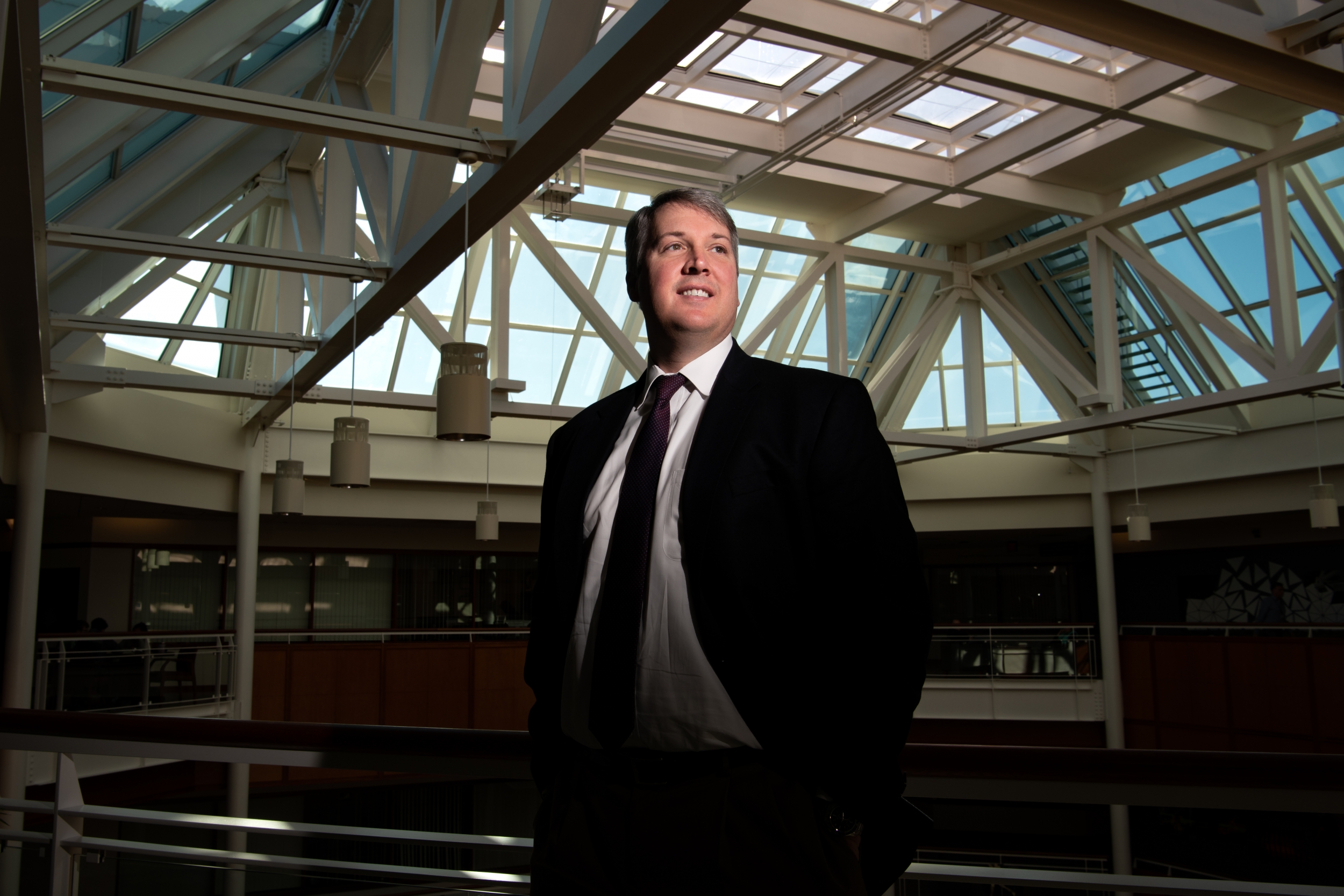William Blackwell is named a 2019 IEEE Fellow

William Blackwell's favorite project began shortly after he first started working at Lincoln Laboratory in 2002, fresh out of MIT's doctoral program in electrical engineering and computer science. He helped to develop the next generation of environmental monitoring satellites for the National Oceanic and Atmospheric Administration (NOAA). "This work really helped me appreciate the challenges of space-based environmental monitoring," he said, "and began to shape my thinking on how future sensing architectures might be better optimized."
Seventeen years and several promotions later, Blackwell has been named a 2019 Fellow of the Institute of Electrical and Electronics Engineers (IEEE) for his contributions to remote sensing algorithms and instrumentation. The IEEE is the world's largest technical professional organization dedicated to advancing technology for the benefit of humanity. Fellowship is conferred to members who have contributed significantly to the advancement of engineering, science, and technology, bringing the realization of significant value to society.
"Bill has been instrumental to the evolution of our nation's weather monitoring and prediction capabilities," said Grant Stokes, head of the Space Systems and Technology Division at Lincoln Laboratory. "Over the past 10 years, Bill has systematically developed the technology to build atmospheric sounder systems, which measure the vertical profile of the atmosphere's temperature and humidity, into CubeSat form factors. This will lead to inexpensive satellite constellations that measure the atmosphere more accurately and much more often than existing operational systems, leading to a more accurate understanding of the state of the atmosphere for forecasting and climate monitoring applications. His election as IEEE Fellow reflects his immense and continuing contributions."
Now the associate leader of the Applied Space Systems Group, Blackwell leads atmospheric remote sensing projects ranging from the development and calibration of airborne and spaceborne microwave sensors to the application of signal processing and estimation theory. He's the principal investigator on both the NASA Time-Resolved Observations of Precipitation structure and storm Intensity with a Constellation of Smallsats (TROPICS) Earth Venture mission and the Micro-sized Microwave Atmospheric Satellite (MicroMAS) missions. Traditionally, the satellites that gather the humidity and temperature data used to make weather predictions are the size of a room. Blackwell's work on the TROPICS and MicroMAS missions is not only shrinking the satellites into something that can be picked up with one hand, but making them more accurate, too.
Blackwell holds a BS degree in electrical engineering from the Georgia Institute of Technology, and SM and ScD degrees in electrical engineering and computer science from MIT. He served as the associate editor of the IEEE Transactions on Geoscience and Remote Sensing and the IEEE Geoscience and Remote Sensing Society (GRSS) Magazine. He has co-chaired the IEEE GRSS Remote Sensing Instruments and Technologies for Small Satellites working group and served on the NASA Aqua science team and the National Academy of Sciences Committee on Radio Frequencies.
The IEEE fellowship is far from Blackwell's first honor; in 2009 he received the NOAA David Johnson Award for his work in neural network geophysical parameter retrievals and microwave calibration, and he was selected in 2012 as a recipient of the IEEE Region 1 Managerial Excellence in Engineering Organization Award. He has more than 125 publications relating to atmospheric remote sensing to his name.
Blackwell stressed, however, that he could only take partial credit for the IEEE fellowship and his significant contributions to remote sensing. "I think it is more an indication of the great research environment and culture here at the Laboratory rather than any personal achievement," he said. "I've been tremendously fortunate to work with many talented and driven colleagues, with unwavering support from Laboratory leadership, to take on some very challenging and important problems using unorthodox approaches."